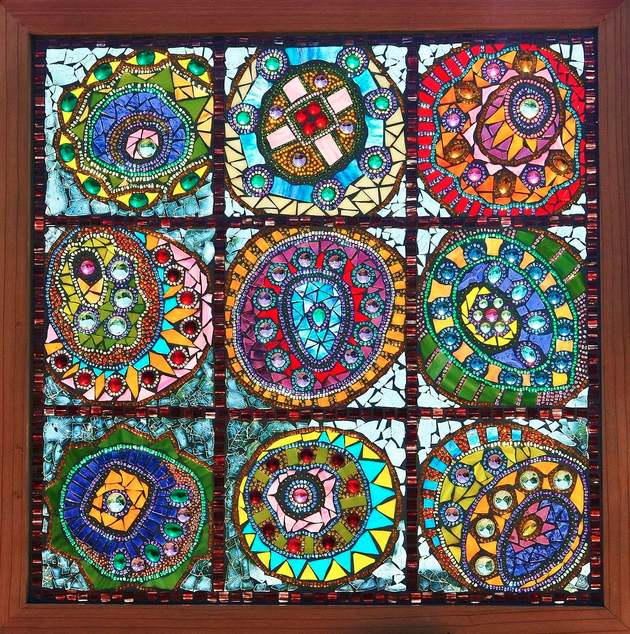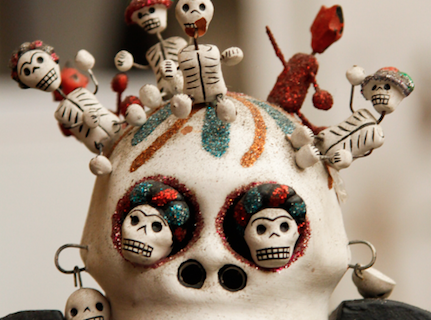
Spiritual Gaslighting Part 2: Structures that Prevent It
In…2020, we may feel as if the world comes to a halt. This huge global crossroad polarizes the forces of humanitarian consciousness and goodwill, for one, versus ancient and outdated forces of control, manipulation, and abuse of power, on the other hand. The fight can be fierce! One of the most noticeable changes we may observe is that in the coming few years, we’ll see more and more individuals taking full responsibility for their role within the society, living in harmony with one another and with the environment. This is how globally humankind will graduate from the state of teenager/young adult to a fully formed and assumed adult degree…The new world coming up is one where people assume their autonomy within group agreements rather than passively following leaders. This type of patriarchal hierarchy has been useful when humanity was younger, now it is outdated, and we are moving towards equality within community members aligning with group choices.
Marielle Croft (astrologer)
In the January 2020 article I wrote for Pagan Pages Magazine, we explored the topic of spiritual gaslighting in spiritual communities, what this looks like, and why it can become rampant in groups. In part two, we will look at structures of governance that can help keep our neurological vulnerabilities in check by ensuring that all voices are heard and that decision-making is truly a community-based process. Although no one system humans have created to govern is perfect, there are ancient and newer ways of working together in groups that have been tried and tested throughout many cultures around the world based on more egalitarian processes. Working in this way requires a willingness to shift out of the pyramidic hierarchal models of “managing” groups that most of us are accustomed to in favour of circular ways of working together in order to come up with creative solutions to local and global problems. In many ways, humanity’s survival on earth depends on our ability to move forward with sustainable and fresh ideas that will align us with the earth (and each other) once more.
Hierarchal models tend to invite spiritual gaslighting and other maladaptive relational interactions because they are grounded in scarcity consciousness: In order for the one at the top to continue to gain, the ones below must lose. In other words, control and hoarding of power are seen as necessary to maintaining status and profits. In this worldview, the idea is that there isn’t enough to go around so we have to fight for our share. It may seem as if this survival of the fittest model has been around forever because it is the current “norm,” however, it is relatively new (about 2000 years) when looking at human history (about 200,000 years). Moreover, there have always been groups who actively resisted this method of governance–such as many of the world’s indigenous people. This is for good reason: It makes societies sick.
In Johann Hari’s book “Lost Connections,” he explores the epidemic of mental health issues (depression, suicidal ideation, and anxiety) that are sweeping through the developed world. Backed by scientific research, Hari tells many stories of communities and businesses that operate in a circular manner. It turns out that when people have a say over how they live their lives and have input into group decisions, they are happier and healthier. For folks practicing earth-based medicine, this is not news. In many shamanic traditions, for example, folks practice maintaining their personal sovereignty within community contexts as a way of life. Spiritual practices are done daily to help individuals find a balance between “I” and “we.” When everyone is valued and win-win solutions are found, there is much less suffering in our communities.
The circle has healing power. In the circle, we are all equal. No one is in front of you, no one is behind you, no one is above you, no one is below you. The Sacred Circle is designed to create unity. The Hoop of Life is also a circle. On this hoop, there is a place for every species, every race, every tree, and every plant. It is this completeness of Life that must be respected in order to bring about health on this planet.
– Dave Chief (Oglala Lakota)
Indeed, when we see ourselves connected to all of life in a circle or a web, we see how much we rely on all the other parts of the system. In Balinese culture, for example, there is a history of consulting with neighbours before making any change to land-based management. The neighbour at the source of the river knows that her actions will affect the neighbour downstream and cares for her part of the decision-making process. Discussions continue until a solution is found that will care for humans and ecosystems all the way down the line. It turns out that the Balinese have built into their culture a way of holding space for varied needs and points of view, much in the way nature does:
How is it that the boundless diversity of nature interacts as an extraordinary and harmonious eco-system, rather than dropping into a melee of competing interests, destructive conflict or soul-deadening, copy-cat conformity? It is all a question of holding space for it. The more diverse the input into any field, the more potential there is for conflict, yes, but also for creative innovation…If we cannot hold space for increasing diversity, we risk extinguishing our creative passion for originality, and then the energy, excitement and evolution that uniqueness evokes will be lost. Those of us in positions of spiritual leadership and sacred guardianship desire a more vitalising outcome for our communities. That means we need to tend to the way that we hold space.
-Alana Fairchild (“Earth Warriors Oracle”)
Luckily, humans don’t have to reinvent the wheel when it comes to creating systems where every voice can be heard; many communities around the world have been operating in this fashion for a long time (the Balinese being one of these). In sociocracies, a type of dynamic governance, members work in circles and have defined jobs. This is structured carefully so that everyone is included. Instead of operating via consensus, they work with consent based on a “range of tolerance.” In order to proceed with an idea, all members of the circle have to agree to move forward. Decisions can be revisited until a mutually agreeable solution is found. Not everyone gets their personal preference but all main objections are worked through in the process of reaching a decision. Information flows between circles so the focus on the goal remains at the forefront.
The shift out of patriarchal models is already happening; all over the world, we see these systems starting to crumble. Millennials I talk to don’t have any interest in rebuilding or revitalizing organizations and institutions that operate in this manner. They are simply walking away from them in order to build something new that will be life-giving for themselves and their communities. The brilliant, late founder of family therapy, Virginia Satir used to say that when one part of a system changes, the whole must change in response. This is a tenant in systems theory. Humans have evolved all this time because we are adaptable and creative. And we can learn to live in greater harmony with each other if we use our ingenuity.
Harmony does not mean that everyone is in agreement. It means that no one is attempting to force his or her opinions on others.
Harmony does not mean that everyone is the same. It means that everyone respects and tolerates and even celebrates the differences that give so much richness to life.
Harmony is not ever achieved by brute force. Harmony is reached when every individual understands, on his or her own terms, that it is by far the most effective way to live.
Harmony does not come about through intimidation or scolding or threats of punishment. Harmony is reached through understanding.
Harmony cannot exist where people are interested only in what they can take. Harmony is built through giving.
Harmony comes not by giving in or by being weak or by surrendering one’s most treasured principles, or by the cowardly attempt to control others. Harmony is the domain of those who are confident enough in their own lives to allow others to peacefully flourish.
-Ralph Marston
*This article first appeared in the March 2020 edition of Pagan Pages Magazine.
Recommended Resources
January 2020 Pagan Pages Article: Spiritual Gaslighting Part 1 by Jennifer Engrácio
Marielle Croft (astrologer)
Site: https://www.croftastrologer.com/
Sociocracy for All
Site: www.sociocracyforall.org
YouTube video: What is Sociocracy?
YouTube video: Sociocracy 3.0 – Consent Decision Making Demonstration
Book: “Lost Connections: Why You’re Depressed and How to Find Hope” by Johann Hari


